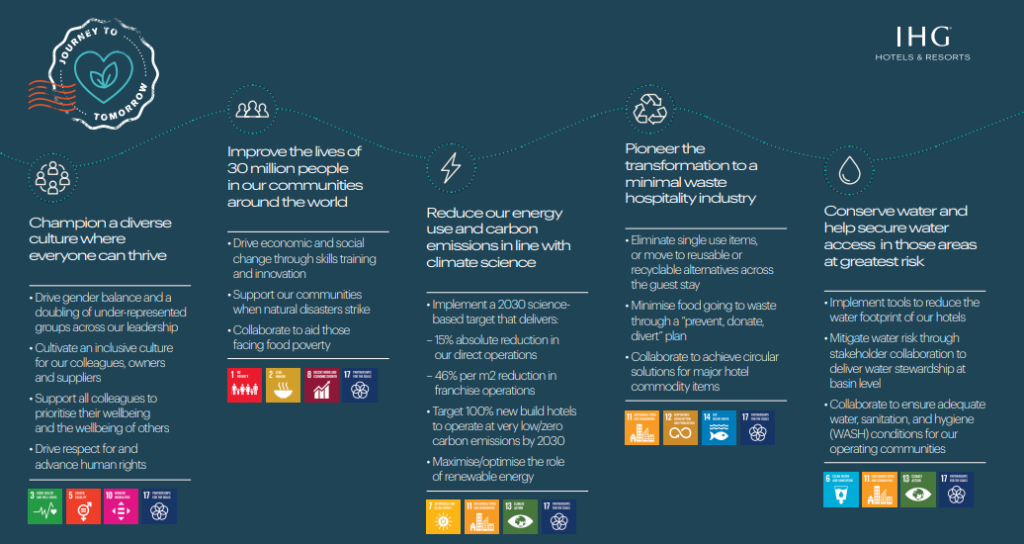The travel industry had been fast approaching a tipping point - overcrowded destinations, restrictive airport infrastructure and growing emissions were just some of the more critical areas of concern. To return to that normal would be a crime against the environment and the very future of travel and tourism.
To be honest, most hotel providers were already along the road to supporting a sustainability agenda. Plastic straws in restaurants and bars had already been pretty much eliminated, single-use plastics in guestrooms were following across most brands, while major brands were making strong promises to cut their environmental footprints, reduce water wastage and increase social impact investment.
Sustainability is far from new, but it was becoming a more serious discussion point as we entered the 2020s. Travellers were already becoming more impact-conscious and the coronavirus pandemic has only accelerated as they reflect on their travel patterns and, most importantly, their impact. Social, environmental and ethical considerations are becoming central to buying preferences, especially those younger than 25 years old category.
IHG's research, based on 9,000 adult surveys across the US, UK, Germany, Greater China, the UAE and Australia, highlights the strength of feeling. Three in five respondents (60%) agreed that they want to be more environmentally and socially conscious on their travels. This was led by more than two thirds (69%) of younger travellers (aged 18 to 24), although less than half (48%) of 55s and over felt the same way.
It appears travellers not only intend to do more for the planet and communities around them, they are willing to pay for it too. The research found that consumers will spend an average of 31% more on accommodation they know operates responsibly - with more than half (51%) happy to pay more than 20% extra a night.
This echoes a study CTC - Corporate Travel Community highlighted recently from the hotel room offer platform Hoo. Questioning over 2,500 people on their feelings around air quality and its influence within the holiday booking process, it found 50% of people would opt for a destination with better air quality, even if it meant travelling for longer. More notable is the fact that a similar number (48%) stated that they would pay more money to travel to that destination.
READ MORE INSIGHTS FROM THIS STUDY: Searching for sustainability - around half travellers will travel further and pay more for a destination with better air quality
With the world travelling more locally (mainly domestically) - or not at all - right now, it seems the pandemic has made consumers more mindful about preserving and connecting with the communities around them.
More than half of the global respondents (57%) to the IHG study said they care more about doing their bit for local communities and the planet while travelling, now than they did 10 years ago. In fact, approaching half (46%) said they are more likely to be mindful about avoiding tourist activities that have a negative impact on the local environment and communities since the global pandemic.
A high majority (86%) also said it is important to get to know the local community when visiting somewhere new, with two thirds doing this by supporting local eateries (67%), followed by shopping locally (64%), speaking with the locals (61%), and getting involved with local tours (48%).
A further 3 in 10 choose to stay with travel companies that offer local community programmes. As for activities such as volunteering and restoration projects, young travellers aged 18-24 are nearly three times as likely to get involved when visiting another country, compared to those 55 and over, according to the research.
"The appetite for better, greener travel is ripe," says IHG. More than four in five (82%) adults around the world said they are committed to taking their everyday sustainable habits with them when they travel, with using the correct waste and recycling disposal for different items taking the top spot as the number one habit.
Hotels are an important part of the sustainability journey. The two most popular habits when travelling according to the survey respondents was to re-use towels in rooms and walking short distances to explore the local neighbourhood. When asked what people would avoid so they could be a more responsible traveller, just under half (47%) said they would avoid leaving the air conditioning on when they leave the room.
The findings of the research, commissioned as part of IHG's launch of 'Journey to Tomorrow', helps facilitate the 10-year action plan, which comprises a series of far-reaching new commitments which IHG sees as delivering "a positive difference and help shape the future of responsible travel".

"Our goal is to help shape the future of responsible travel together with those who stay, work and partner with us. We will support our people and make a positive difference to local communities while preserving our planet's beauty and diversity... not just today but long into the future," says IHG.
The aims of the plan comprise initiatives to champion a diverse culture where everyone can thrive; improve the lives of 30 million people in communities around the world; reduce energy use and carbon emissions in line with climate science; pioneer the transformation to a minimal waste hospitality industry; and conserve water and help secure water access in those areas at greatest risk.
After the shocks of 2020, the current year could be one of the hardest for many industries. For hotels - like most sectors - 2020 was simply a year about surviving, while 2021 will be about transforming businesses for the future under what remains challenging short- and medium-term outlooks. It is clear that sustainability will be at the heart of many of these new strategies.